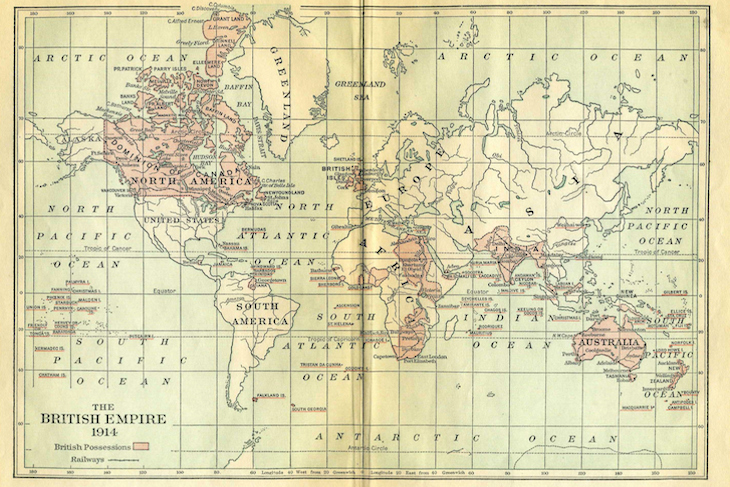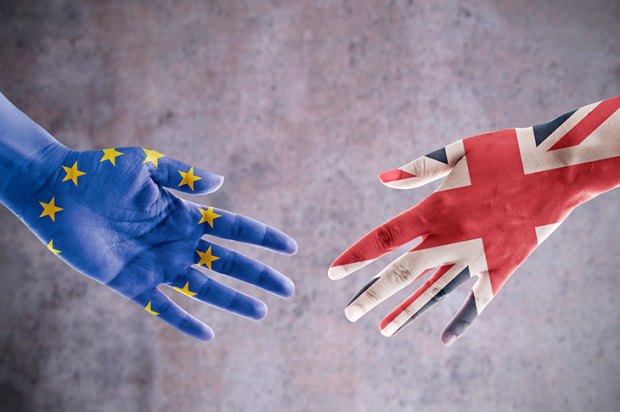Britain’s imperial past distorts the debate about our place in the world, but not in the way that is commonly assumed. It is often asserted that claims about this country’s international importance are a form of nostalgia. It would be more accurate to say that Britain tends to underestimate its power because it is no longer the global hegemon.
Britain might not be, in 1066 and All That terms, ‘top nation’ any more. On any objective reading, however, the United Kingdom is still an influential global player. It is a permanent member of the UN Security Council, the sixth largest economy in the world, a nuclear weapons state, a member of the world’s most powerful intelligence agreement and a cultural superpower.
When it comes to acting on the world stage, British prime ministers can be damned if they do and damned if they don’t. If the UK joins the US in military action, it is dismissed as merely the Americans’ spear carrier. If it sits it out — or, even worse, is not invited to participate — then this country is branded an irrelevance. It is striking how concerned the Foreign Office has been this week about the possibility of France and the United States responding to Syria’s use of chemical weapons without Britain.
One of the questions that this country must begin to answer in the next few years is what its role in the world will be after Brexit. To many of those who backed Britain’s entry into the European project in the first place, the idea was that Britain would maintain its relevance by becoming one of the leading nations in the European endeavour. The fatal flaw was that this country was never keen on the idea of ‘ever closer union’. It clashed too strongly with the understanding of sovereignty that had developed here since 1532 and the Act in Restraint of Appeals to Rome.
The result was that Britain was in the European Union but not a participant in its most important project: the single currency. So it became impossible for Britain to lead, in the full sense of the word, in Europe. Roy Jenkins, the only Briton ever to have been president of the European Commission, was right when he said that there are only two coherent British attitudes to the European project: fully in or out. Indeed, Britain’s departure from the EU became close to inevitable from the moment that this country decided it would never join the euro.
Even outside the EU, however, Britain will remain heavily involved in European security. It is an irony of Brexit that Britain has actually become more important to the continent’s security since the referendum. The election of Donald Trump has raised real questions about America’s commitment to Nato. Trump might be an outlier, especially in how he expresses himself, but the frustration he is voicing about the United States protecting countries that aren’t prepared to spend even the Nato minimum of two per cent of their GDP on defence is by no means confined to him.
After Britain has left the EU, European Union nations will account for 72 per cent of Nato’s membership but only 20 per cent of its military expenditure. This is not a sustainable position. EU states will have to raise their defence spending considerably over the coming years. But even if that happens, Britain will have an important role to play in Europe’s defence against both Russian aggression and the Islamist terrorist threat.
Encouragingly, the UK and the EU do seem to be moving towards a sensible security partnership after Brexit. The EU’s stronger than expected support for the UK over the Salisbury attack was a clear sign that it wants a close relationship on these matters after Brexit. No attempt was made to show the British that the decision to leave had affected the level of EU support for them over this incident.
Britain is one of the two major military powers in Europe and it has been reported that the other power, France, wants the European intervention force that it is developing to operate outside of EU structures. This would make it much easier for Britain to participate and be another demonstration of this country’s continuing importance to European security.
The EU’s need for unanimity on most foreign and security matters limits its effectiveness in dealing with various threats. Take Russia: the influence of Russian money in Cyprus means it is unlikely to sign up to genuinely tough action against Moscow. In Italy and Austria, politics is structurally quite pro-Russian. In Germany, the reliance on Russian gas complicates the country’s attitude towards Moscow. It is to be hoped that the reservations Angela Merkel expressed this week about the proposed Nord Stream 2 pipeline mark the beginning of a broader rethink of this project: for Western Europe to increase its reliance on Russian gas at this moment would be an historic mistake.
There is an interesting question as to whether Britain will be able to play a role outside of the EU in pushing for tougher action against Russia. The response of the Russian stock market to the US freezing the assets of a handful of Kremlin-friendly oligarchs and various senior government officials shows how vulnerable Moscow is to targeted economic sanctions. But for Britain to do this, it would first have to decide to clamp down on the dubious Russian money that flows through the City of London.
After Brexit, there is not going to be just one answer to Britain’s role in the world. Continuing participation in European security will be part of it, as will a close relationship with the United States. Britain should also be an advocate for free trade around the globe. Odd as it may sound, it may well make sense for this country to join the Trans-Pacific Partnership as part of its post-Brexit trade policy.
If Britain is to continue influencing world affairs, it will have to invest in the mechanisms that allow it do so. That will mean spending more on diplomacy and defence. Britain will be a more valuable defender of the international rules-based order and a better ally to both the EU and the US if it can project force far beyond its borders when necessary.
Got something to add? Join the discussion and comment below.
Get 10 issues for just $10
Subscribe to The Spectator Australia today for the next 10 magazine issues, plus full online access, for just $10.
You might disagree with half of it, but you’ll enjoy reading all of it. Try your first month for free, then just $2 a week for the remainder of your first year.














Comments
Don't miss out
Join the conversation with other Spectator Australia readers. Subscribe to leave a comment.
SUBSCRIBEAlready a subscriber? Log in